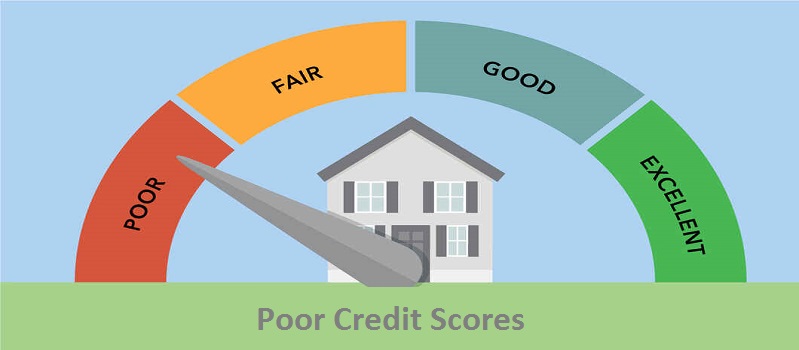Debt starts racking up as a result of pending payouts. It happens when you purchase items on credit and cannot keep track of it. Here, you fail to recall when your expenses have surpassed your income.
Suppose a loan needs you to remember the repayment date when payments should be made. The loan amount will become a debt when you miss the date. It will then grow in size because of the inclusion of surplus charges for delaying payments.
This oftentimes happens when you do not follow up on the amount you owe. Repaying becomes hassle-free and within the deadline when you monitor your debts. This is, in fact, the first step of debt management, and you must pursue it if you want respite from pending payments.
Moreover, you must think of situations which can cause the accumulation of debts. At times, a wrong loan option can become the reason for your financial anxiety. If rates and terms of traditional lenders do not seem affordable, why borrow from them when the alternative way of borrowing is possible for you?
Online lending is so blissful that you can get no guarantor loans from direct lenders. They are ideal for any short-term emergency and do not require you to flaunt a perfect credit history or to produce a guarantor. Above all, you can save time and effort at the time of applying them.
This right step at the right time can help you in managing present and future debts. Keep reading if you want to fetch more information about debt management.
Strategies to be debt-free made easy
Debt is something that if you have managed it smartly will not bother. On the flip side, if you are unaware of the ways to stay organised with it, you can be in deep trouble. One thing is that you cannot avoid it completely but can control it largely with the help of a few habits and tactics.
1. Take note of the debts you have
If you are going through a tough financial situation because of debts, write down them in one place to keep a record. You can take necessary actions to rectify your situations when your thoughts are scattered. To articulate everything, find out about the existence of each debt and note them down.
This is in fact the easiest of all tasks. Read your bank statements and bills to locate them. Once you have an idea about the amount of money you owe, you can devise a plan for the next set of actions. Now, for multiple debts, you will need a concrete strategy that might be available with a consolidation loan.
Clubbing more than one pending issue to form a single unit to tackle further is possible with this option. On the other hand, you can formulate a personal strategy to downsize the level of debt.
2. Reiterate if you should borrow
The borrowing decision should comply with your ongoing financial situation. It must tell you the type of loan, i.e., one that is suitable for your necessities. Facing rejection is inevitable if you choose the wrong loan option or if your circumstances are not perfect for borrowing.
Some lenders are willing to accept poor scores if your affordability is notable. It does not mean that they must be ready to offer loan help to those with very low scores. However, you can fetch very bad credit loans with no guarantor from a direct lender.
You can see how the lending conditions change from lender to lender. Instead of selecting a random loan option and feeling upset about rejection, invest your time in looking for the ideal loan provider. After that, understand their set of conditions to leave no stone unturned in ensuring successful approval. They might ask you to provide collateral as your credit scores are very poor. Some kind of guarantee is necessary to safeguard loan payments.
3. Spend less and save more to keep debts at bay
You might wonder if you can stay away from debt. Unfortunately, complete protection from a debt situation is almost impossible. It is because you might have to take out money for some reason or the other at some point in time.
However, you can strive hard to maintain the debt level up to a certain limit. For this reason, the sure-shot way is to review and reduce your expenses whenever possible. This will pave the way for savings, which you can utilise to pay off debts.
You can start saving from the moment you are reading this point. It is not easy, as you will need determination, but it is not unachievable at the same time. Point out the outgoings that have less impact on your budget and eliminate them right away.
It can be a trivial expense, which can help you save a small amount of money. Another expedition of this type in a single month lets you come closer to your target. Keep repeating this habit if you want to recover from debts completely.
4. Use online apps to budget and monitor
If you find budgeting is tough to execute, you can take the assistance of online apps. Some of them are free to use and have user-friendly features. They will make your job easy and less hectic.
Set a target and allow them to keep track of your steps. You can figure out how much you have achieved so far with their help. Besides, it is well and good if you have online banking access.
It facilitates easy checking of balance at any time. You just have to tap a few buttons to see how much you have spent and the extent of outstanding residing in your account. Receive a notification every time you spend money for some purpose.
When you take account of what happens with your money, you can keep away uninvited expenses. Your bank statement shows the avenues you spend money. Remove any outgoing if it does not seem meaningful anymore.
The bottom line
If you are going through a rough patch because of debts, find out the steps you can try to keep a tab on the debt accumulation. Do not hesitate to discuss with lenders if you can redo the repayment structure.

Emma Anderson is a financial advisor at Quickloanslender who always believes in researching hard to know her clients’ financial problems. She takes the time to understand their financial wants and needs to write the blogs on them as the solutions. In her long 14 years of experience, she has written plenty of blogs on the financial and business sectors of the UK.
Emma Anderson has been recognised for her work in financial planning and her blogs are regularly published in the website of Quickloanslender. As far as her educational qualification is concerned, she has done Masters in Accounting and Finance, and done PG Diploma in Creative Writing.






